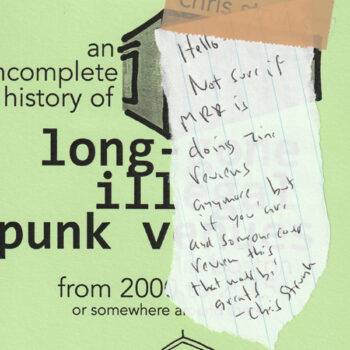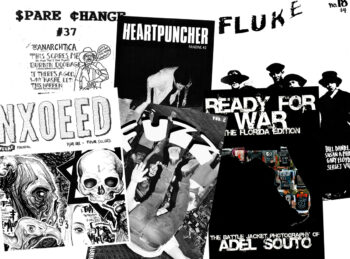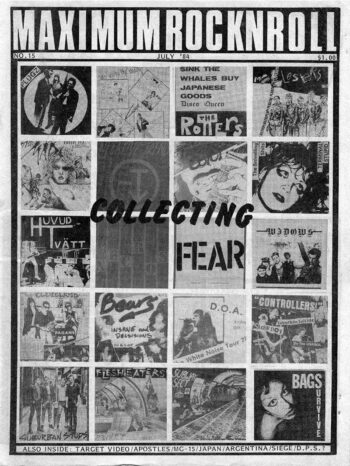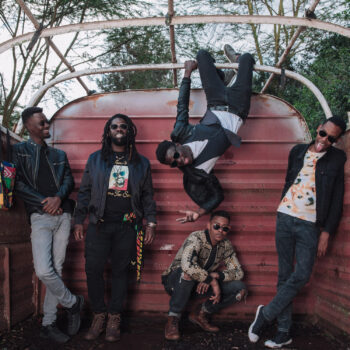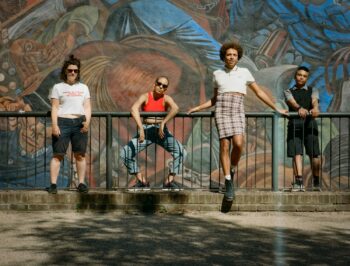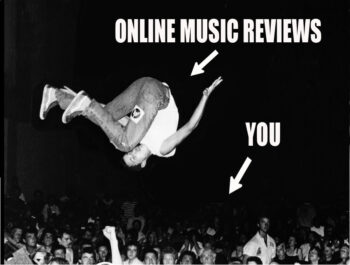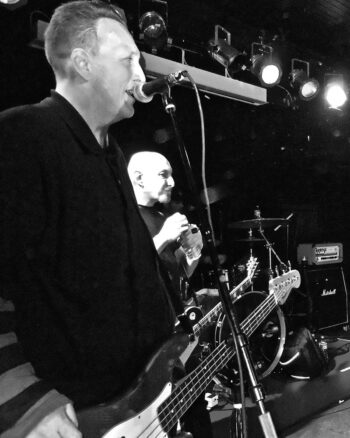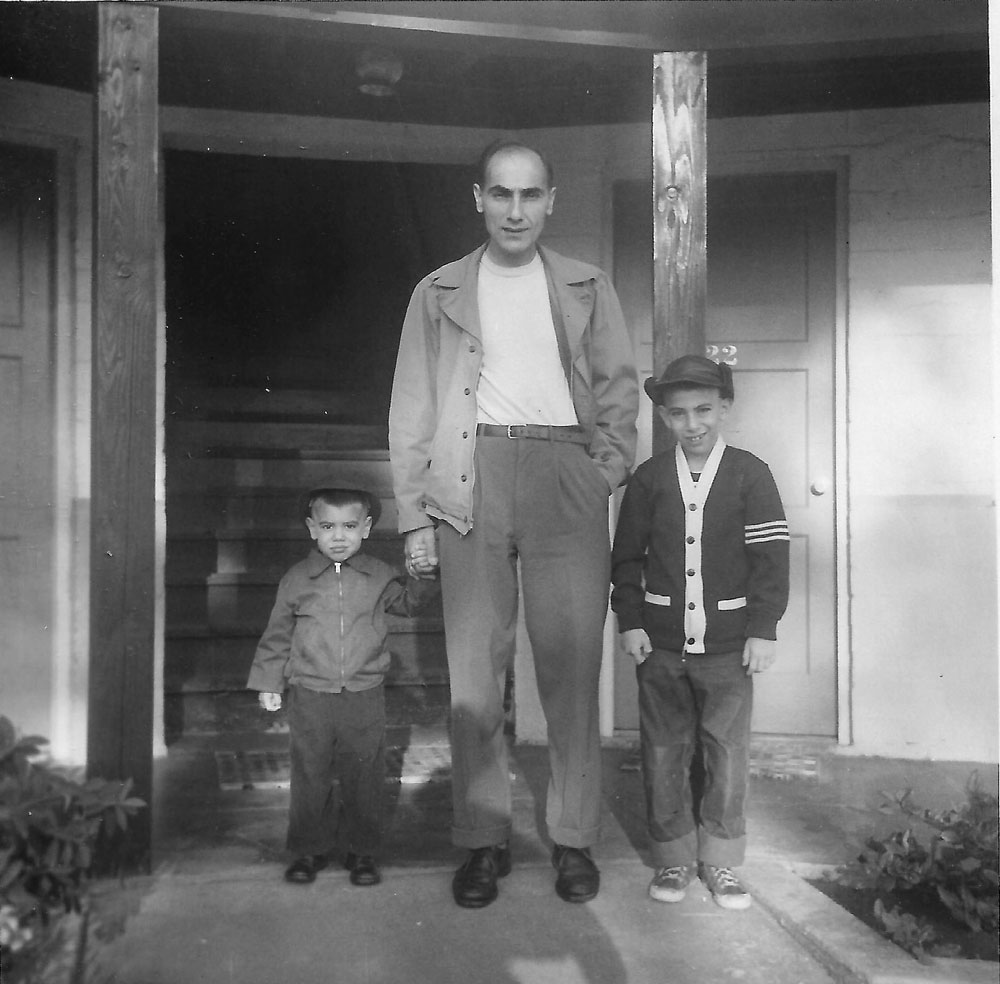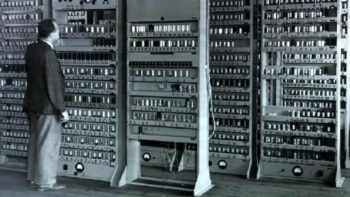Blast From the Past: Nixe
This originally appeared in MRR #309 which you can pick up here
Holland’s Nixe gained worldwide notice in collector circles during the Killed by Death explosion, particularly with their appearance on the Killed by Epitaph double LP, as a photo of one of the members looking rather menacing appeared on the sleeve. To me, they embody the best aspects of the late-’70s Dutch punk sound, with its mixture of clear political engagement and expressions of utter boredom over uncomplicated, scrubby, dry punk rock. Perhaps more so than almost any other band of the era, The Nixe sang about the ordinary, the quotidian, the everyday and managed to capture how punk rock itself could enable a change in what was the otherwise rather banal existence for a young person in the late ’70s. Punk meant a new point of view, an action. Their songs about relations between men and women, probably because of their quotidian nature, managed to approach the issues in a novel way, without resorting to cliché or slogans. But their music’s clarion simplicity also demonstrated the do-it-yourself ethos of punk—that no one but you could change your everyday life—and demonstrated that learning to play came second, after having fun. All the band’s recordings, including several unreleased tracks, were recently released on LP in a handsome gatefold by France’s Pollymaggoo Records. I caught up with some of the members—along with Jeroen Vedder, a Dutch punk historian who wrote the liner notes for the LP—via email over the summer.
Interview by Stuart Schrader

MRR: What inspired The Nixe to form? Was forming an all-women band a conscious decision in response to what was already available in the punk scene? Were you inspired by other bands (from Holland or other countries) with women members?
Nikki: My introduction to punk was in a club called RASA where I was a volunteer. In May 1977 the Ramones and Talking Heads played there. I liked the Talking Heads, but absolutely hated the Ramones. It took another year for me to “get it.”
The main reason was that I knew these guys (Gerben and Lex from the Lullabies and Ton who was in the Duds) who had become punks and were the most obnoxious and irritating people around. But at least they created a stir in the stoned hippy environment of those days, and that was something I could relate to.
Ilva and me wanted to start a band like our (then) boyfriends in the Lullabies, just to have fun. We asked our friend Marian because she could play “Smoke On The Water” and “House Of The Rising Sun,” which made her a real virtuoso in our eyes.
There was no real inspiration from other girl bands. I mean, we loved Patti Smith, but she was on a completely different level. We just wanted to have our little punk band.
Marian: I was more inspired by men playing guitar. I’m very sorry, but my inspiration at the time came from the hippy scene. Bob Dylan and people like that. But I always liked dancing to the Sex Pistols. Dolly Parton, Blondie, or “Gloria” by either Them or Patti Smith were others I used to request. Later on I started to like more punk rock bands, but they never really inspired me. Not that they weren’t good, far from it, but I was more guided by my lack of skills. Playing with Ilva and Nikki seemed very exciting. Just trying to make music. Punk was never a goal, but it gave us an opportunity to play.
MRR: What was Utrecht like in the late ’70s/early ’80s? You sang “Boring City,” but it seems to me that the punk scene must have been exciting. What was the political situation? Did punks have trouble with the police? Was squatting important in Utrecht?
Nikki: There was always this cat and mouse game with the police. They didn’t really know what to do with us, and we had something to rebel against. Squatting was very important. It gave us a place to live.
MRR: What bands did The Nixe play gigs with? What bands were your favorites? Did you receive support from The Ex or other bands?
Nikki: Initially we played with the Lullabies. Later on with other bands from Utrecht as well. You know—Rakketax, Bizon Kidz, Noxious, etc. We also played with The Ex. Support from other bands was mainly that we could use their equipment and share rehearsal space. Because of the many gigs all over the country, we were able to buy our own stuff later on.
Marian: We also got a lot of support from Hi-Jinx en de Straks.
MRR: What was Rock Against? Who organized this label? Did the label do more than release records? What’s the story of the label? What is the story behind the Live at Parkhof LP? What about Rock Tegen de Rollen?
Nikki: I think Jeroen can better answer that one.
Jeroen: Rock Against was a very loose congregation, not an actual label as such. Everyone was allowed to use the name. But it did make the scene look more coherent to the outside world.
The Parkhof was a club/squat in Alkmaar that was threatened with closure at the time. In protest a festival was organized, and the recordings made that day turned into an album. I distinctly remember some bands being very unhappy with this release and accused the organizers of not having had permission for the release of some tracks.
Rock Tegen De Rollen was a Dutch “Rock Against Sexism” type festival in which Marian was involved.

MRR: What was your reaction to the beginning of the hardcore punk movement? Did you find it to be macho and unwelcoming? What led to the end of The Nixe? Did you feel that you were treated as sex objects by men in the punk scene?
Marian: I never experienced things as “sexist,” maybe I was naive.
Nikki: The macho thing never bothered me, as I was rather macho myself. Any guy who felt the need to take me on was welcome to give it a try.
Marian: We quit because we no longer had time to come up with new stuff. We were always doing gigs and just repeating the some songs over and over.
MRR: Why did you decorate your 7″ EP sleeves individually? How many did you make? How long did it take to decorate them?
Nikki: Having a sleeve done seemed like a lot of trouble, and as Marian and Ilva both worked at a elementary school, they figured the could let the children make them (ouch, child labor!) We did another 450 at home under the influence of some red wine and vodka. It took about a day, and you can tell the one’s we did at the end by lines like “I can’t think of anything else” or “how about some pizza?”
MRR: What is your favorite Nixe recording?
Nikki: Difficult! But I’d pick the ones from the compilation album with Gerben’s naked torso on the sleeve. “Have A Nice Day”, “Man Under My Bed” and “Lovesong” are great tunes that I still like to hear.



